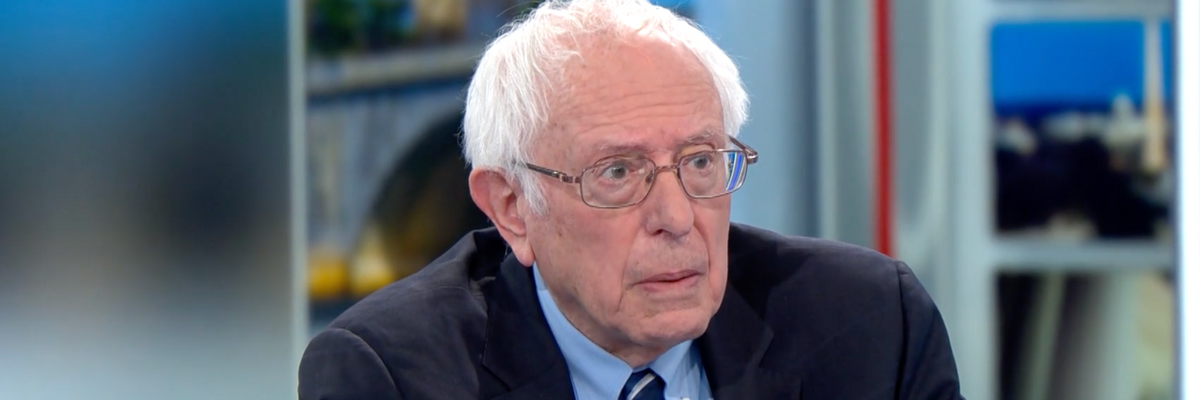Appearing on "Face the Nation" on CBS Sunday, U.S. Sen. Bernie Sanders discussed a number of issues he covers in his upcoming book, It's OK to Be Angry About Capitalism, including his proposal to ensure the news media acts in the interest of the general public and not wealthy corporations and powerful interest groups.
Host Margaret Brennan described his proposal as "a New Deal for journalism."
As some European countries do, the Vermont Independent senator said, the U.S. should have "nonpartisan public funding of media" to ensure local news outlets can stay afloat and keep communities informed about "their city council, their school board."
Such a system would also prevent news networks like CBS from relying on advertising dollars, which Medicare for All advocates have blamed for playing a role in the corporate media's hostility towards a nationalized healthcare system and other progressive proposals for the public good.
"What I say in the book is that look, I've done 1,000 interviews, like I'm doing with you right now," Sanders told Brennan. "And nobody has ever come up to me, not one reporter—not you, not anybody else—and said, 'Bernie, why are we spending twice as much on healthcare as any other country and yet we have 85 million uninsured or underinsured?' How many programs at CBS, NBC, ABC had on why we have a dysfunctional healthcare system? Does that have anything to do with who owns the major networks? 'Bernie, what are you going to do about income and wealth inequality?' ... 'Why are billionaires paying an effective tax rate lower than working class people?' No one asked me those questions."
As Luke Savage reported at Jacobin following the 2020 presidential election, viewers of the Democratic primary debates weren't informed by moderators that Medicare for All was supported by a majority of Americans, and ad breaks featured "health insurance and pharmaceutical companies seizing every opportunity to bombard viewers with misleading industry agitprop about the breathtaking wonders of profit-driven healthcare."
He added:
CNN’s Detroit debate is a case in point; the network was demanding at least $300,000 from companies advertising, with a single thirty-second spot costing an estimated $110,000—and groups like the so-called Partnership for America’s Health Care Future (in practice, a front for various corporate interests), filled out many of the slots. Regardless of how anchors or hosts think about an issue like healthcare, the networks' basic model essentially precludes meaningful critique of the status quo by design. As long as it persists, don't expect to see the public interest or popular opinion reflected anywhere on cable TV.
To counter that dynamic, Sanders argued on "Face the Nation," a New Deal for journalism including publicly funded media is "an idea that we should explore."
In the interview, the senator spoke about his support for attaching "some strings" to U.S. funding for Israel to help pressure the country to end its human rights abuses against Palestinians.
Sanders also reiterated his call for the Democratic Party to focus on representing the interests of all working people.
"What we need to do is have a movement of Black workers, Latino workers, white workers, gay workers, straight workers, and understand that we're all in this together," said Sanders. "I don't care if you're living in rural Iowa, where I spent a lot of time, alright, you can't afford health care, you can't afford to send your kid to college, or you're living in San Francisco. So too often we forget about the economic issues that unite us. The vast majority of the people know the pharmaceutical industry is ripping us off. The vast majority of the people understand that we have to improve our educational system. Let's work on that."

